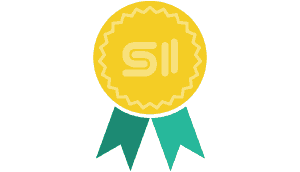John Locke est un des premiers philosophes à participer à ce mouvement des lumières. We are naturally free. Lockeâs Some Thoughts Concerning Education was mostly composed from a series of letters to a friend about the education of his children. Pour lui, lâesprit humain est « une table rase » sur laquelle viennent sâimprimer les expériences et les sensations. Cet article met en lumière les trois principaux aspects de lâéducation selon John Locke. Puis il entra à Oxford en 1652. He believed in the experience acquired through oneâs own senses. John Locke - cosmovisions.com C'est par la crainte et le respect que vous devez d' abord prendre de l' empire sur leurs esprits, c'est par l' amour et l' amitié que vous devez plus tard les conserver. Question #308097. Une vie consacrée à l'éducation. Empiricism is the theory of knowledge that claims that most or all our knowledge is obtained through sensory experience, rather than through rational deduction or innateness. He believed that the purpose of education was to bring. Education means shaping according to each individual's temperament and skills, exercised without brutality, but in a rigorous and pragmatic manner. Rejetant le concept des idées innées, Locke considère que l'esprit de l'enfant est une tabula rasa sur laquelle viennent se graver les impressions du monde extérieur. John Locke (1637-1704) représente, avec Thomas Hobbes, la figure dominante de la philosophie anglaise du 17ème siècle. Médecin et précepteur, il accorde une importance fondamentale à lâéducation. Education - John Locke Foundation John Locke et la violence éducative - OVEO The Blank Slate. Théoricien d'une science postcartésienne fondée sur lâempirisme, John Locke est aussi le promoteur d'une philosophie politique reposant sur la notion de droit naturel.Précurseur du libéralisme, il fut pris pour modèle par les philosophes français du siècle des Lumières. Un fait que j'ai souvent observé chez les enfants, c'est qu'ils sont enclins à maltraiter toutes les pauvres créatures qui sont en leur pouvoir. John Locke - International Bureau of Education Locke believed the purpose of education was to produce an individual with a sound mind in a sound body so as to better serve his country. Une philosophie de l'éducation - John Locke, Some Thoughts ⦠In his âEssay Concerning Human Understanding,â Locke introduced his idea that the human mind at birth is âwhite paper void of all characters, without any ideas.â. Références de John Locke - Biographie de John Locke. «Quelques ⦠Menâs happiness or misery is most part of their own making. Some Thoughts Concerning Education. John Locke's views on education are based on his empirical theory of human knowledge in his famous work âAn Essay Concerning Human Understandingâ. Il fit des études de philosophie de latin et de grec à l'école de Westminster. Locke believed that the purpose of education was to bring children up to be virtuous, using the power of reason to overcome desire. John Locke John Locke John Locke. Mais Locke se dégoûte petit à petit des études. John Locke Some Thoughts Concerning Education and of the ⦠Some Thoughts Concerning Education is a 1693 treatise on the education of gentlemen written by the English philosopher John Locke.
Mariage Religieux Sans Mariage Civil Belgique,
Hoffnung Nach 3 Fehlgeburten,
Logement Insolite Colorado Provençal,
Pierre Billon Musculation,
Chanteuse Française La Plus écoutée Dans Le Monde,
Articles J



